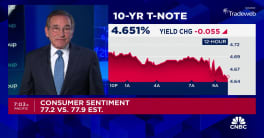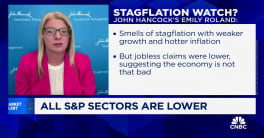The minutes of the Federal Open Market Committee's (FOMC) June 24-25 meeting show that FOMC Board Members agreed upside risks to inflation had increased and generally agreed downside risks to growth had diminished. Most members thought the current 2.00% target rate was appropriate but that risks to inflation may initiate a reassessment.
Most members said an unchanged target rate "would support an eventual decline in both inflation and unemployment," but that "circumstances could change quickly" and they would be ready to "respond promptly to incoming information about the evolution of risks."
The Committee expected inflation to "moderate in coming quarters, reflecting a projected leveling-out of energy and other commodity prices and an easing of pressures on resource utilization". However, they remained uncertain about the inflation outlook and said it would "necessary to continue to monitor inflation developments closely," the minutes read.
On growth, the FOMC staff raised its projection for GDP growth in 2008. Participants' projections for real GDP growth were between 1.0% and 1.6%, noticeably higher than the April projections, which were between 0.3% to 1.2%.
"The available indicators of spending, particularly those for consumption and business investment, suggested that economic activity in the first half of the year had been somewhat firmer than previously expected," the minutes said.
The staff expected modest expansion in real GDP in the first half of 2008 followed by a slight slowdown in growth in the second half. In 2009, the pace of economic activity was projected to pick up, but despite this acceleration, "the trajectory of economic growth anticipated through 2009 implied noticeable slack in resource utilization."
On the labor market, the minutes reveal that the FOMC doesn't expect the unemployment rate to decline for at least another year. "Most participants anticipated persistent slack in labor markets, with the unemployment rate rising further through next year, before declining slightly in 2010."
The Committee said consumer spending picked up from the sluggish pace in the first quarter. However, most participants thought that much of the recent strength likely indicated a more delayed slowing in spending rather than a more favorable trend, due to a boost from the fiscal stimulus package.
"Falling wealth and real income, tightening credit conditions, rising energy prices, and sharply declining consumer sentiment were seen as likely to restrain consumer spending later this year, particularly after the effects of the fiscal stimulus waned," the minutes read.
By Patrick McGee and edited by Nancy Girgis







